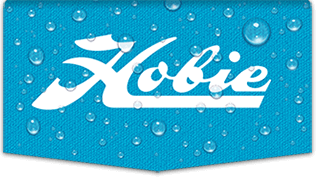|
All times are UTC - 8 hours [ DST ] |
 
|
Page 1 of 2 |
[ 30 posts ] | Go to page 1, 2 Next |
|
| Author | Message | ||||
|---|---|---|---|---|---|
| buzzman2 |
|
||||
Joined: Mon Feb 13, 2006 8:37 pm Posts: 238 Location: Columbus Ohio |
|
||||
| Top | |
||||
| Skipshot |
|
||||
Joined: Wed Jul 06, 2005 2:15 pm Posts: 1201 Location: Oakland, CA |
|
||||
| Top | |
||||
| MBounds |
|
||||
Joined: Mon Jul 14, 2003 7:11 pm Posts: 5198 Location: Detroit, MI |
|
||||
| Top | |
||||
| Karl Brogger |
|
||||
Joined: Sat Feb 24, 2007 8:45 pm Posts: 1668 Location: Northfield Minnesota |
|
||||
| Top | |
||||
| srm |
|
||||
Joined: Mon May 09, 2005 10:25 am Posts: 4284 Location: Jersey Shore |
|
||||
| Top | |
||||
| iresq |
|
||||
Joined: Sat Aug 25, 2007 6:57 pm Posts: 39 Location: Annapolis MD |
|
||||
| Top | |
||||
| MBounds |
|
||||
Joined: Mon Jul 14, 2003 7:11 pm Posts: 5198 Location: Detroit, MI |
|
||||
| Top | |
||||
| Adrio |
|
||||
Joined: Wed Jul 12, 2006 5:33 am Posts: 145 Location: Ottawa, Canada |
|
||||
| Top | |
||||
| tjp |
|
||||
Joined: Fri Jul 08, 2005 1:30 pm Posts: 259 Location: Vancouver, WA |
|
||||
| Top | |
||||
| buzzman2 |
|
||||
Joined: Mon Feb 13, 2006 8:37 pm Posts: 238 Location: Columbus Ohio |
|
||||
| Top | |
||||
| srm |
|
||||
Joined: Mon May 09, 2005 10:25 am Posts: 4284 Location: Jersey Shore |
|
||||
| Top | |
||||
| J_Eaton |
|
||||
Joined: Thu Oct 25, 2007 7:04 am Posts: 818 Location: Clinton Lake Kansas |
|
||||
| Top | |
||||
| MBounds |
|
||||
Joined: Mon Jul 14, 2003 7:11 pm Posts: 5198 Location: Detroit, MI |
|
||||
| Top | |
||||
| Karl Brogger |
|
||||
Joined: Sat Feb 24, 2007 8:45 pm Posts: 1668 Location: Northfield Minnesota |
|
||||
| Top | |
||||
| Sail Revolution |
|
||||
Joined: Wed Jul 21, 2004 7:46 pm Posts: 1457 Location: Santa Cruz |
|
||||
| Top | |
||||
 
|
Page 1 of 2 |
[ 30 posts ] | Go to page 1, 2 Next |
|
All times are UTC - 8 hours [ DST ] |
Who is online |
Users browsing this forum: No registered users and 2 guests |
| You cannot post new topics in this forum You cannot reply to topics in this forum You cannot edit your posts in this forum You cannot delete your posts in this forum |


